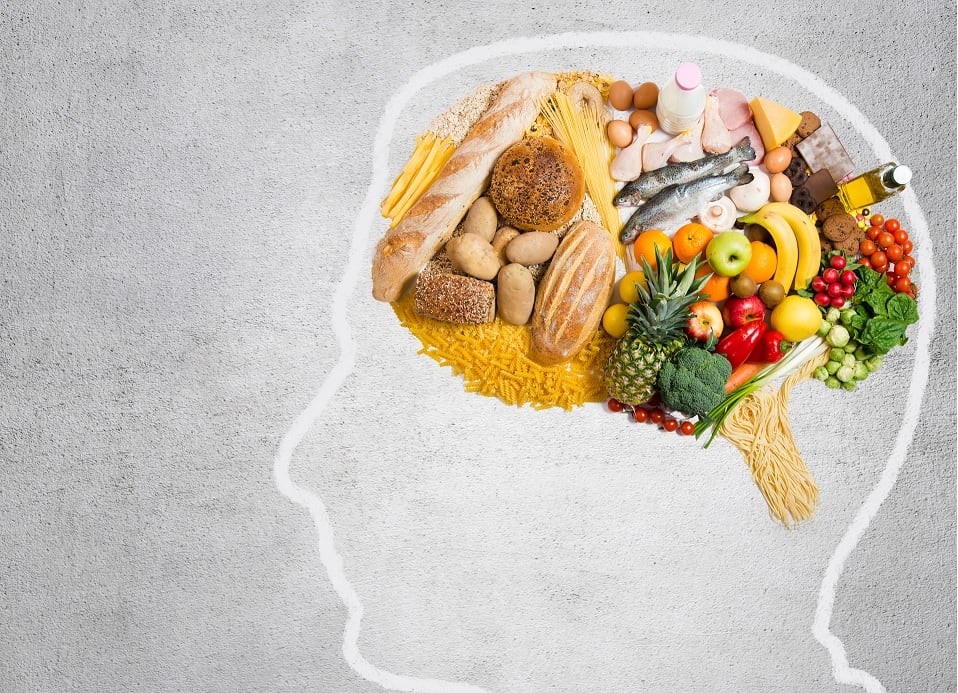Participants were split into three groups according to their dietary inflammatory index (DII). Over three years, those in the group with the highest DII were found to be three times more likely to develop dementia than those in the lowest DII group.
“We were able to demonstrate that the inflammatory potential of the diet, assessed using an easily applicable tool, was positively associated with the risk for dementia in community-dwelling, non-demented older adults,” wrote the researchers in the journal Neurology.
They said the results “replicate and expand” previous findings from a US-based population study involving a cohort of 7085 women aged 65-79. This found that higher DII scores were associated with a higher risk of MCI or probable dementia, and with greater cognitive decline and earlier onset of cognitive impairment. The current study demonstrated the association between higher DII scores and a higher risk of dementia in a sample of 1059 men and women with a mean age of 73.
Participants were recruited from the Hellenic Longitudinal Investigation of Aging and Diet (HELIAD) - a population-based study designed to investigate the link between diet and dementia and other neuropsychiatric conditions as well as to establish the prevalence of these age-related diseases in the Greek population. Men and women with no baseline dementia, available follow-up data and baseline dietary information were chosen from the entire study population.
Dietary intake was evaluated through a food frequency questionnaire on all the main food groups consumed during the last month. Results were then extrapolated into macro- and micronutrient intakes.
Dietary Inflammatory Index explained
The Diet Inflammatory Index is a system that was developed by researchers for classifying foods based on evidence that dietary factors influence inflammation. It identifies 45 foods and nutrients that are associated with inflammatory biomarkers. For the purposes of this study, 36 food frequency questionnaire-derived food parameters were used for DII calculation.
Each individual’s diet was assigned a DII score, with a higher score indicating a more pro-inflammatory diet and a lower score indicating a more anti-inflammatory diet. The researchers also divided the study sample into three tertiles, according to their inflammatory diet potential.
The participants were followed for three years, and of the 1059 who took part, 62 developed dementia in that time. Modelling revealed that greater inflammatory diet potential was associated with a significantly higher risk of dementia. Compared to participants in the lowest DII tertile, participants in the highest one were three times more likely to develop dementia.
The researchers also noted a potential dose-response relationship between the inflammatory potential of the diet and the risk of dementia; in other words, the higher the DII, the higher the risk of developing dementia.
Mechanisms: Immunosenescence and inflammaging
Immunosenescence and inflammaging are two aging-related processes present in the majority of individuals. Immunosenescence is when the immune system changes and declines with age, possibly contributing to age-related conditions such as cardiovascular, metabolic and neurodegenerative diseases. One of the features of immunosenescence is the increase in cellular production of pro-inflammatory mediators. These contribute to inflammaging - a condition that has been associated with dementia and identified as a risk factor for age-related CSVD (Cerebral Small Vessel Disease).
There is increasing evidence of complex interactions between food components and histone modification, DNA methylation, non-coding RNA expression and chromatin remodelling that influence the inflammaging phenotype. Therefore, diet might play a valuable role in combating inflammaging and counteracting its associated risk for dementia and late-life cognitive impairment.
To this end, the researchers said that “the development of a widely-applicable and reliable method to characterise individuals’ diet based on their inflammatory potential is an important priority in the pursuit of healthy aging and cognitive health maintenance strategies”.
Source: Neurology
Charisis S, Ntanasi E, Yannakoulia M, Anastasiou CA, Kosmidis H, Dardiotis E, Gargalionis AN, Patas K Chatzipanagiotou S, Mourtzinos I, Tzima K, Hadjigeorgiou G, Sakka P, Kapogiannis D, Scarmeas N
“Diet Inflammatory Index and Dementia Incidence: A Population-Based Study”
DOI: 10.1212/WNL.0000000000012973

